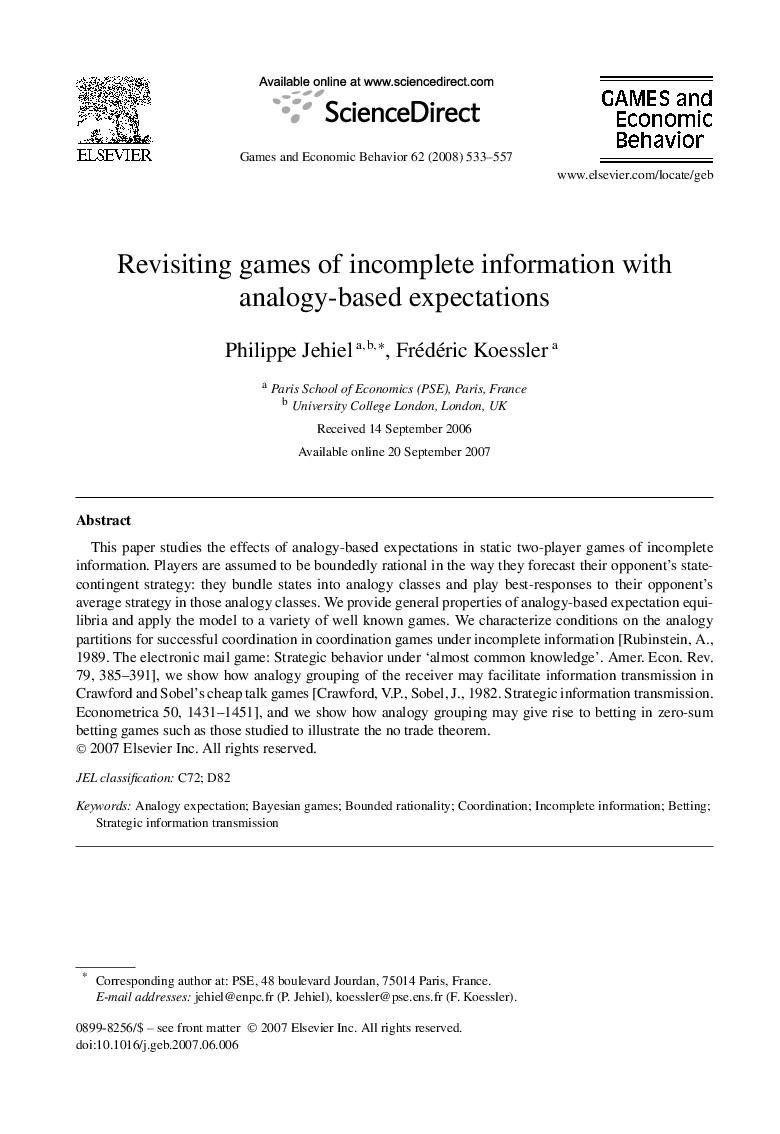| Article ID | Journal | Published Year | Pages | File Type |
|---|---|---|---|---|
| 5072719 | Games and Economic Behavior | 2008 | 25 Pages |
This paper studies the effects of analogy-based expectations in static two-player games of incomplete information. Players are assumed to be boundedly rational in the way they forecast their opponent's state-contingent strategy: they bundle states into analogy classes and play best-responses to their opponent's average strategy in those analogy classes. We provide general properties of analogy-based expectation equilibria and apply the model to a variety of well known games. We characterize conditions on the analogy partitions for successful coordination in coordination games under incomplete information [Rubinstein, A., 1989. The electronic mail game: Strategic behavior under 'almost common knowledge'. Amer. Econ. Rev. 79, 385-391], we show how analogy grouping of the receiver may facilitate information transmission in Crawford and Sobel's cheap talk games [Crawford, V.P., Sobel, J., 1982. Strategic information transmission. Econometrica 50, 1431-1451], and we show how analogy grouping may give rise to betting in zero-sum betting games such as those studied to illustrate the no trade theorem.
